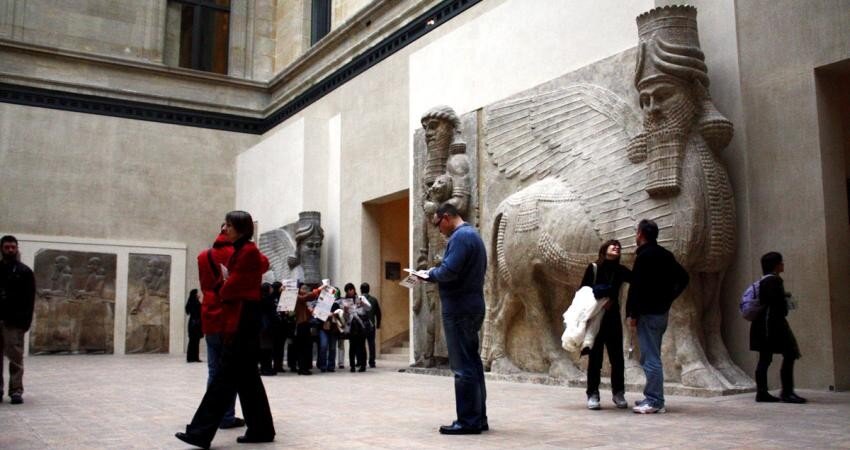Iranian, French experts to discuss ways to expand cultural heritage ties

TEHRAN – Teams of Iranian and French scholars are scheduled to discuss ways to strengthen cultural heritage ties in an online seminar, Mehr reported on Saturday.
Organized by Franco-Iranian Center in close collaboration with the Louvre Museum the webinar will be held on March 18, the report added.
Iranian scholars Ruhollah Shirazi and Arezou Rasouli as well as the Director of Islamic Arts at the Louvre Yannick Lintz, Director of Louvre Oriental Antiquities Department Ariane Thomas, and several French scholars and archeologists including Rocco Rante, Julien Cuni, Jean-Claude Voisin, and Sebastien Gondet are scheduled to give speeches during the session.
In 2018, Louvre lent art to Tehran for an 'unprecedented' show, which was held at the National Museum of Iran. The show was the first large-scale exhibition by a major Western museum in the country, putting on show some 50 works including 2,400-year-old Egyptian sphinx, a bust of Roman emperor Marcus Aurelius and drawings by Rembrandt and Delacroix, and other artifacts linked to Greek, Egyptian and Mesopotamian culture, as well as objects from ancient Iran. In parallel with the Tehran exhibition, the Louvre-Lens presented a vast collection of objects handcrafted by Qajar-era (1785-1925) talented Iranian court from March to July of the same year.
Iran is home to one of the world’s oldest continuous major civilizations, embracing settlements dating back to 4000 BC. The name of Iran, formerly known as Persia, mostly conjures up the first Persian Empire, ruled by the Achaemenids (550 – 330 BC) and sites such as Pasargadae and Persepolis. However, there are tens of prehistorical sites as the Burnt City in Sistan-Baluchestan, Tepe Sialk in Kashan, Susa and Chogha Zanbil in the Khuzestan province, and Ecbatana in Hamedan which predate the Achaemenid period.
From a wider point of view, Iranian history can be divided into Pre-Islamic and Islamic eras. The Medes unified Iran as a nation and empire in 625 BC. The Islamic conquest of Persia (633–656) that put an end to the mighty Sassanid Empire (224–651) was a turning point in the history of the nation.
ABU/AFM

Leave a Comment